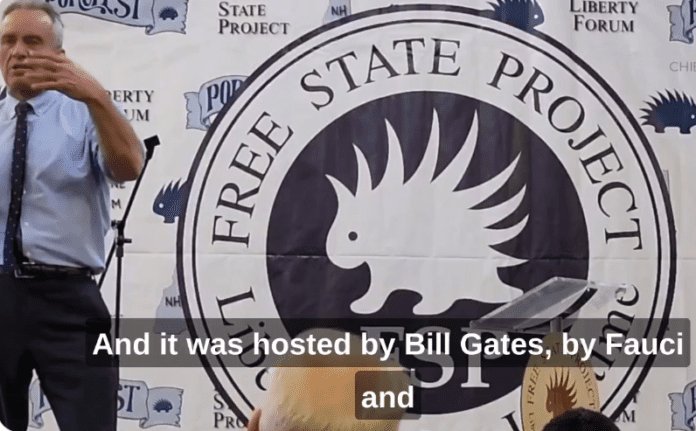In the tangled web of tech billionaires, global health, and the vaccine industry, a viral conspiracy theory has resurfaced, casting a harsh spotlight on Bill Gates. As Robert F. Kennedy Jr.’s recent appointment by Donald Trump reignites debates about corporate profiteering and public health, Gates finds himself at the center of an alleged pump-and-dump scheme involving BioNTech—one that has the internet, especially X (formerly Twitter), in an uproar.
The Gates-BioNTech Connection: A Perfectly Timed Play

Here’s how the story goes: In September 2019, months before COVID-19 turned the world upside down, the Bill & Melinda Gates Foundation acquired BioNTech shares at a pre-IPO price of $18.101. Once the pandemic hit and BioNTech became a household name for its mRNA COVID vaccine, the stock price skyrocketed.
Then, during BioNTech’s most lucrative quarter, Gates’ foundation sold 86% of its holdings at an average of $300 per share. The result? A jaw-dropping $260 million profit—a fifteen-fold return on investment.
Critics argue this was no coincidence. Instead, they see it as a meticulously planned move, executed with the precision of a Wall Street shark, not a humanitarian philanthropist.
The Timeline of Suspicion
The events surrounding Gates’ BioNTech involvement read like the playbook of a Hollywood villain:
- September 2019: Gates’ foundation quietly buys into BioNTech.
- 2020-2021: Gates becomes the loudest voice promoting global vaccination efforts, ensuring demand.
- 2021: Gates sells most of his shares at peak value, cashing in on the vaccine frenzy.
- 2023: Gates suddenly criticizes mRNA vaccines, questioning their efficacy and longevity.
During an appearance at Australia’s Lowy Institute, Gates commented, “We also need to fix the three problems of [COVID-19] vaccines. The current vaccines are not infection-blocking. They’re not broad… and they have very short duration, particularly in old people.”
His words seemed like an about-face, raising the question: Was Gates distancing himself from mRNA technology after making billions off it?
Kennedy’s Appointment Fuels the Fire
The conspiracy has gained fresh life following the appointment of Robert F. Kennedy Jr. as Secretary of Health and Human Services. Kennedy, a vocal critic of vaccine profiteering, has long been at odds with Gates over global health strategies. On X, Kennedy’s followers have amplified the BioNTech story, questioning Gates’ motives and demanding accountability.
Kennedy’s platform, “Make America Healthy Again” (MAHA), has placed a spotlight on corporate greed within the pharmaceutical industry, with Gates as its poster child. The timing of this resurgence is no accident—it’s a rallying cry for a generation skeptical of billionaire philanthropy.
Gates vs. the Tech Titans
Adding fuel to the fire, Gates has found himself increasingly isolated among tech’s new elite. Unlike the Musk-Thiel-Andreessen power bloc, Gates is portrayed as an old guard figure clinging to influence through questionable means. Elon Musk, in particular, has taken public jabs at Gates, not just over business but hinting at connections to Jeffrey Epstein—a narrative dark enough to make anyone’s reputation crumble.
Public Outrage: Is This the New Normal?
Millennials and Gen Z, fueled by TikTok snippets and viral threads, are questioning everything. The Gates-BioNTech saga isn’t just a story about one billionaire’s investments; it’s a parable about the intersection of wealth, power, and public health in times of crisis.
The bigger question is: Are we witnessing the dark underbelly of modern philanthropy? Platforms like X have become battlegrounds for narratives that blend truth, fiction, and suspicion, leaving many to wonder whether Gates’ actions were humanitarian—or purely opportunistic.
A Broader Conspiracy?
Here’s the kicker: Gates’ critics argue that his actions weren’t just opportunistic but calculated to manipulate global events. Was his investment in BioNTech a savvy gamble—or part of a broader scheme to profit from a crisis he foresaw? And why has Gates pivoted from championing vaccines to questioning their effectiveness?
These questions linger as Kennedy’s MAHA initiative gains traction and more eyes turn toward the billionaires shaping our health policies. For Millennials and Gen Z, raised on skepticism and digital sleuthing, this story isn’t just about Gates. It’s a reflection of a growing distrust in the systems meant to protect us.





